Recent Blog Posts
What Damages Can I Recover After a Boating Accident?
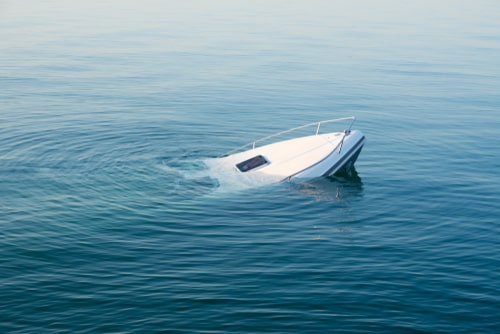 Boating accidents are accidents that involve the collision of a boat into an object or another boat or the negligent or reckless operation of a boat that results in injuries to passengers. Tourists on the U.S. Virgin Islands are often involved in boating accidents, as are locals who may operate boats regularly around the islands for work or pleasure.
Boating accidents are accidents that involve the collision of a boat into an object or another boat or the negligent or reckless operation of a boat that results in injuries to passengers. Tourists on the U.S. Virgin Islands are often involved in boating accidents, as are locals who may operate boats regularly around the islands for work or pleasure.
You may be entitled to compensation if you have been injured in a boating accident. Even if you are no longer present in the U.S. Virgin Islands, you may be able to pursue a case to recover damages. A knowledgeable U.S. Virgin Islands boating accident lawyer can help you understand your options.
Common Boating Accident Injuries
Boating accident injuries may occur for many reasons, including negligence of the ship’s captain, equipment malfunctions or breakdowns, improper training of the boat’s captain or crew, or operation of a vessel while under the influence of drugs or alcohol.
Slip and Fall Incidents Around the U.S. Virgin Islands
 With numerous tourists and residents living their lives around the U.S. Virgin Islands, slip and fall accidents are sure to occur at some point. Some slip and fall incidents may be more common than others, though that does not mitigate the seriousness of the injuries that someone can sustain after this type of accident. Suppose you have been injured in a slip and fall incident around the U.S. Virgin Islands. In that case, a skilled premises liability lawyer can help you explore your legal options and possibilities for compensation.
With numerous tourists and residents living their lives around the U.S. Virgin Islands, slip and fall accidents are sure to occur at some point. Some slip and fall incidents may be more common than others, though that does not mitigate the seriousness of the injuries that someone can sustain after this type of accident. Suppose you have been injured in a slip and fall incident around the U.S. Virgin Islands. In that case, a skilled premises liability lawyer can help you explore your legal options and possibilities for compensation.
How Do Slip and Fall Accidents Commonly Occur?
Slip and fall accidents occur in a number of different ways, and these accidents can happen virtually anywhere. However, some situations are more common for slip and fall accidents, such as the following:
- Wet surfaces without signage, including those on properties around beaches, near swimming pools, and at restaurants
Common Airbnb Injuries in the U.S. Virgin Islands
 St. Croix, St. Thomas, and St. John make for popular tourist destinations in the U.S. Virgin Islands, and many Airbnb rentals or other vacation rentals own properties on these islands and rent them to visitors. However, injuries and accidents do occur from time to time in an Airbnb, and it is important to be aware of common Airbnb injuries, as well as your options if negligence or recklessness on behalf of the Airbnb rental owner contributed to or caused your injuries.
St. Croix, St. Thomas, and St. John make for popular tourist destinations in the U.S. Virgin Islands, and many Airbnb rentals or other vacation rentals own properties on these islands and rent them to visitors. However, injuries and accidents do occur from time to time in an Airbnb, and it is important to be aware of common Airbnb injuries, as well as your options if negligence or recklessness on behalf of the Airbnb rental owner contributed to or caused your injuries.
A skilled U.S. Virgin Islands Airbnb injury attorney can help you navigate your legal options, even if you are no longer within the U.S. Virgin Islands.
What Are the Most Common Airbnb Injuries?
Airbnb rentals are becoming increasingly common, especially in bustling tourist areas around the U.S. Virgin Islands. It is important to understand the potential for injuries in your Airbnb rental, so you know what to look out for if you or a loved one do get hurt and need help during your vacation.
What Should I Do if I Was Injured on a Boat in St. John?
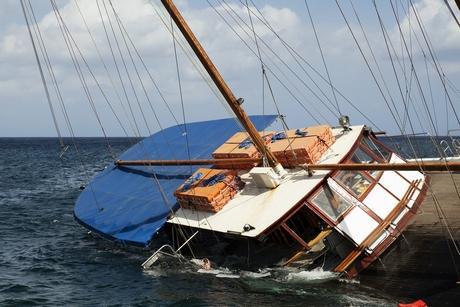 Part of the thrill of a vacation in the U.S. Virgin Islands is the excitement you feel when out on a boat with your friends and family. However, if you or a loved one are injured on a boat trip, legal proceedings can get complicated. If you believe that such an injury was caused by a defective boat part, you may have to untangle some complicated legal proceedings in order to find fault with the manufacturer or the company you rented the boat from. Do not risk taking your case to court alone. Get the help you need from a trusted personal injury attorney.
Part of the thrill of a vacation in the U.S. Virgin Islands is the excitement you feel when out on a boat with your friends and family. However, if you or a loved one are injured on a boat trip, legal proceedings can get complicated. If you believe that such an injury was caused by a defective boat part, you may have to untangle some complicated legal proceedings in order to find fault with the manufacturer or the company you rented the boat from. Do not risk taking your case to court alone. Get the help you need from a trusted personal injury attorney.
Injuries Due to Defective Boat Parts
The types of accidents that can happen due to defective boat parts can vary depending on the situation. Faulty equipment might lead to flooding, capsizing, loss of control, or a crash due to navigation or electrical issues. Assuming that you are renting a boat while on vacation, you and your attorney would have to decide whether to pursue legal action against the boat's owner, the manufacturer, or a combination of both. Lawsuits due to defective parts can get complicated, because it is the owner's responsibility to ensure that the boat is in good working order before letting you take it into the water. If you can prove that the necessary precautions were taken, but there was still a malfunction, the manufacturer may be held liable under U.S. law.
Tips for Driving on the Left Side of the Road in the U.S. Virgin Islands

If you are renting a vehicle while you are on vacation in the U.S. Virgin Islands, do not forget that you will have to adjust to driving on the left side of the road. You will most likely have many activities planned, and you may be excited to start exploring the area, but there are a few things that you should keep in mind to ensure your and your passengers’ safety. The traffic laws on the islands may be different from your home state. In some cases, car accidents with minor to serious injuries occur even with careful driving. A skilled personal injury lawyer in the U.S. Virgin Islands can help you navigate the post-accident process smoothly.
Adjusting to the Left Side of the Road
One very important element to note about driving in the U.S. Virgin Islands is that it is not like driving in the United Kingdom. For example, your rental car will most likely be a U.S. import, and the driver’s seat will still be on the left side of the vehicle like you are used to. Since the interior of a rental vehicle will feel no different, you must focus on changing your perspective at intersections. Always remember to look right first when making a turn, since that is where the oncoming traffic will come from. Before driving each day, take a moment to visualize that when you are making a right turn, you must aim for the far left side of the road. If you are on a road with more than two lanes, always driving on the leftmost side can help you grow accustomed to this more quickly. Lastly, know that many other drivers will be getting used to this new perspective, so remember to slow down, drive defensively, and be cautious and aware of your surroundings at all times.
4 Safety Tips for Tourists Traveling to the U.S. Virgin Islands
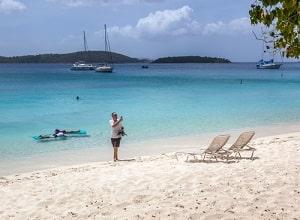
Many people enjoy seeing and experiencing other cultures throughout their lifetime. Traveling to a foreign destination can be an exciting but potentially dangerous adventure. The idea of going to an unfamiliar place can draw out the wanderlust in all of us, but many do not realize the danger that you can easily place yourself in by traveling to somewhere you have never been before. The U.S. Virgin Islands is a popular vacation spot for Americans and it has been regarded as a fairly safe beach haven for travelers. However, regardless of the popularity of the place that you are visiting, there is always the potential for dangerous encounters that result in severe or life-threatening injuries.
Security Issues
The U.S. Virgin Islands are known for their remoteness and tranquility. Being away from the rest of the world can seem like a dream until you are thrown into an unsafe environment and do not know where to turn for help. Keeping in mind the following travel advice can help you avoid hazardous situations that you may encounter while abroad:
Who Is Liable for a Rental Car Accident in the U.S. Virgin Islands?

Most people rent vehicles while on vacation to increase their mobility and allow them to see the sights without relying on public transport. With the remoteness of common vacation spots such as St. Thomas, St. Croix, and St. John, many travelers will rely on car rental companies to enjoy their vacations to the fullest. It is fairly well known that auto rental companies charge high fees for any damage done to their vehicles, but what if you are not the one responsible for a collision and sustain injuries because of the actions of a negligent driver? It is important to understand the liability issues involved in rental car accidents and your options for pursuing compensation for any injuries suffered in a collision.
What Should I Do if I Have Been in a Crash?
Being involved in an automobile accident can be a scary experience for everyone involved. In these cases, taking the proper steps post-accident can help you protect your ability to recover compensation from the person or people who were responsible. The first thing anyone should do after a crash is to make sure everyone is okay and contact local law enforcement. Working with the police may seem extreme, especially if it was just a fender bender, but having officials document the details of your accident can be especially useful when determining liability for the accident. You should be sure to keep your own record of the incident as well, including the involved parties’ names and contact information, photos of the damage and the injuries you have suffered, and a written record of any pertinent details.
What Are Common Causes of U.S. Virgin Islands Boating Accidents?
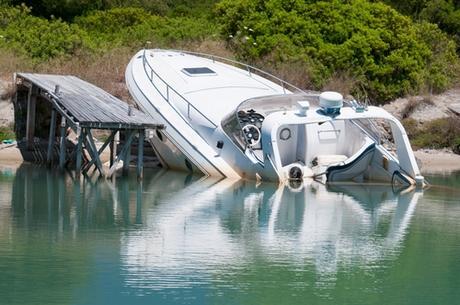 Many people who live or vacation near water own or rent boats. Although boating can be a great way to enjoy the outdoors, especially in warm weather, it can also pose risks to everyone on the water. According to reports by the U.S. Coast Guard, in 2018, there were 4,145 recreational boating accidents that involved 633 deaths, 2,511 injuries, and approximately $46 million in damage to property. Any person who wishes to operate a watercraft in the U.S. Virgin Islands is required to complete a safety course. Despite this regulation, accidents can and do happen on the waterways. In some cases, the injuries can be life-threatening. That is why it is important to understand boating safety and what factors can lead to an accident.
Many people who live or vacation near water own or rent boats. Although boating can be a great way to enjoy the outdoors, especially in warm weather, it can also pose risks to everyone on the water. According to reports by the U.S. Coast Guard, in 2018, there were 4,145 recreational boating accidents that involved 633 deaths, 2,511 injuries, and approximately $46 million in damage to property. Any person who wishes to operate a watercraft in the U.S. Virgin Islands is required to complete a safety course. Despite this regulation, accidents can and do happen on the waterways. In some cases, the injuries can be life-threatening. That is why it is important to understand boating safety and what factors can lead to an accident.
Watercraft Safety
Even if all safety precautions are taken, it is impossible to control the weather or the actions of other boaters. Similar to driving a vehicle, the operator and occupants of a boat must be alert and aware of possible dangers when on the water. Regardless of whether a boat is a small or large vessel, everyone on board must wear life jackets for their safety in the event that an accident or bad weather causes the boat to capsize. Severe winds and high waves can limit visibility and result in a boat taking on a lot of water.
Can U.S. Virgin Islands Harbor Workers Seek Compensation for Injuries?
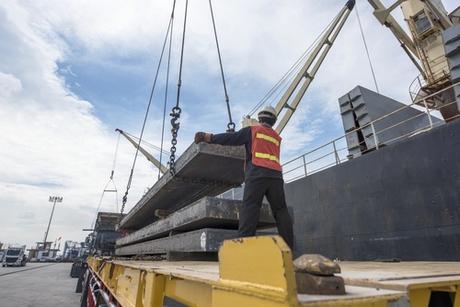 The job duties a worker performs on a daily basis can vary depending on the occupation. For example, an employee may have a “desk job” and work on the computer all day, or he or she may be a doctor or nurse in a hospital. A longshoreman, also referred to as a harbor worker, is a common occupation in areas or locations that are near or on the water. In the U.S. Virgin Islands, many residents are employed by shipping or docking companies. Typical jobs include cargo loaders, ship mechanics, shipbuilders, and people who work on the docks or piers. These harbor workers may be at risk for unique injuries, and they should be sure to understand if they are entitled to compensation and how to file a claim.
The job duties a worker performs on a daily basis can vary depending on the occupation. For example, an employee may have a “desk job” and work on the computer all day, or he or she may be a doctor or nurse in a hospital. A longshoreman, also referred to as a harbor worker, is a common occupation in areas or locations that are near or on the water. In the U.S. Virgin Islands, many residents are employed by shipping or docking companies. Typical jobs include cargo loaders, ship mechanics, shipbuilders, and people who work on the docks or piers. These harbor workers may be at risk for unique injuries, and they should be sure to understand if they are entitled to compensation and how to file a claim.
Common Types of Harbor Accidents and Injuries
Due to the nature of their jobs and where they are located, workers in the maritime industry face dangers that office workers would not. For instance, these individuals may be loading and unloading cargo or repairing ships in port. Longshoremen often use large and hazardous machines to lift heavy cargo while working on wet and slippery surfaces.
Can I Pursue Workers’ Comp for a Construction Site Injury in the USVI?
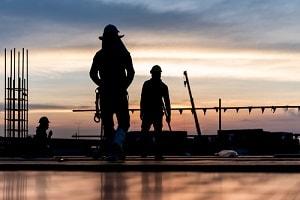
The U.S. Virgin Islands is a beautiful location for tourists to visit and individuals to work. Due to the growing popularity of the islands, new construction projects are starting every day. Additional roads, hotels, restaurants, and attractions are constantly being added to meet tourism needs. However, many of the construction sites that are associated with these projects are linked to interchangeable workers, language barriers, inadequate time frames, improper training, and dangerous equipment. Carelessness and negligent behaviors in an already hazardous environment could lead to workplace injury.
Workers’ Compensation Rights in the U.S. Virgin Islands
In the U.S. Virgin Islands, an employer must have workers’ compensation insurance coverage if the organization has more than one employee. Workers’ compensation is a form of insurance that provides medical and disability benefits to employees who suffer injuries in a workplace accident. If the employee accepts medical treatment and benefits through workers’ comp insurance after an injury, he or she forfeits the right to sue his or her employer. However, a worker can take legal action to cover the costs of medical bills, lost earnings, and pain and suffering if the company does not have workers’ compensation coverage. Furthermore, the employer will be responsible for any additional fines and penalties.

 340-719-1766 340-200-0025
340-719-1766 340-200-0025





